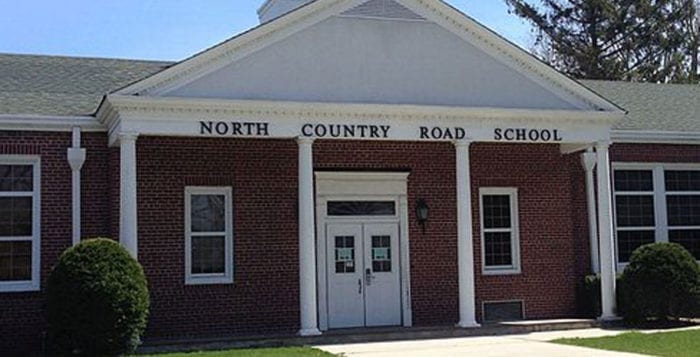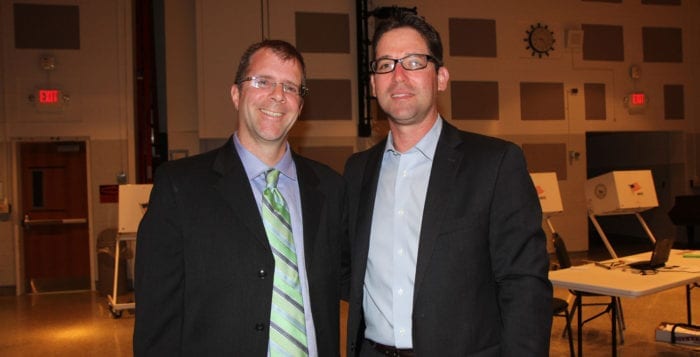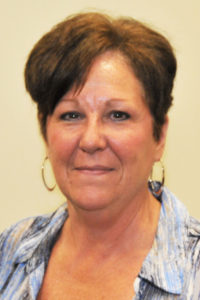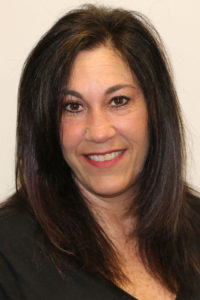The Mount Sinai community sent a clear message May 17 — they’re happy with the trajectory of the district. Three incumbents were re-elected to serve on the board of education and the district’s budget passed with 80 percent support.
Although turnout wasn’t quite what the district expected, the voters who did head to the polls overwhelmingly approved the $59,272,525 budget for the 2017-18 school year, with 1,007 for and 251 against.
“I’m very happy that it passed,” Mount Sinai Superintendent Gordon Brosdal said. “We have great programs here. We can maintain those programs. We made the AP Honor Roll two years in a row, almost every team right now is in the playoffs, our music program is better than ever, so to be able to keep those programs is great, but we’re not resting on that. Now we can get to work on bolstering our elementary reading program, we have a new principal coming in who has high expectations. There are programs we want to put in place that a lot of our kids need in the elementary school.”
He commented on the 200 person drop in voter turnout.
“I’m not happy,” he said. “We have 9,000 eligible voters. I’d like to see 500 to another 1,000 approve it so we have everyone together.”
Incumbents Robert Sweeney (1,013), Edward Law (866) and Peter Van Middelem (860) were all re-elected. Challenger Michael McGuire, who ran last year, nearly doubled his 2016 results, with 597 votes.
“I am honored and humbled that the community decided to re-elect me … to try to do my best for the residents and students,” Law said. “I’m looking to bring back the same stability and fiscal discipline while expanding our programs … to bring students more opportunities.”
For Van Middelem, that’s what it’s all about.
“It’s all for the community,” he said. “First and foremost on all our minds is doing what’s best for the people here.”
Law addressed the challenges the district is facing.
“Whether it’s infrastructure and building repairs, our programs, our class sizes are getting smaller,” he said, noting a shrinking student population. “It’s now about how we maintain or keep on enhancing our programs given our fiscal financial constraints. And that’s what I hope to continue to work on.”
The district will maintain its K-12 programs, including the recently established full-day kindergarten, advanced placement offerings in the high school and its recently established Columbia Writing Program for 2017-18.
The spending plan for next school year includes funds for an academic intervention services teacher in reading, a second security guard, an additional nurse and three new courses — virtual enterprise, college accounting and culinary arts.
Sweeney said he is excited about the new offerings.
“It’s going to be huge,” he said. “Maybe we’ll have neighboring districts who will be interested in sending their students and maybe they have programs we would be interested in.”
He said he’s looking for ways to improve the district.
“We need to start looking at how we can innovate,” he said. “We can’t rely on the state to take care of us.”
He said with teachers and staff who are willing to take on the challenges, he’s proud to see how far the district has come.
“You go back in time, this was a feeder district,” he said. “We had two little schools and we weren’t a big deal. This little district, 2,100 students, leads in AP, in colleges we go to, championships in sports. This district has started to really show how to grow.”
Sweeney said the district is hiring a new elementary school principal with a Columbia Writing Program background, to enhance what already exists, and the Socratic method is used to help students talk through challenges in the high school, and he’s hoping to bring the same system to the middle school level.
“I feel very strongly about this community,” Sweeney said. “I’m very proud and honored to serve. It’s a great school district. It requires real work and smart decisions. The community needs to realize how important it is … this is our town. I live on the other side of the high school and we pick to live here. We didn’t think about this house versus that one, we picked to live here because of this school district. I dare say if you asked many of out community members, that’s what they did.”





















